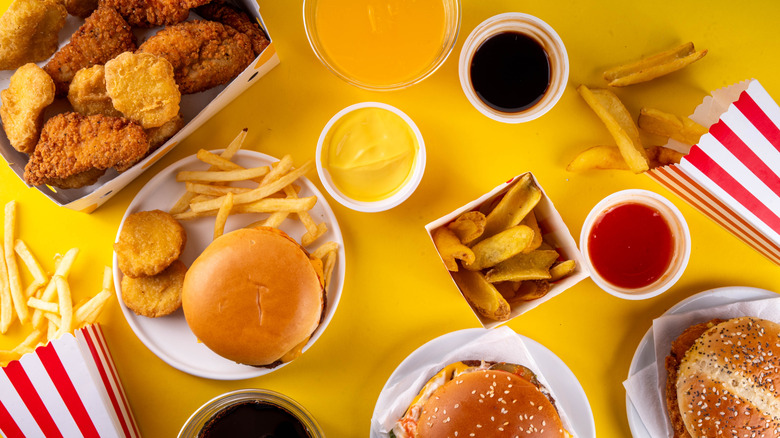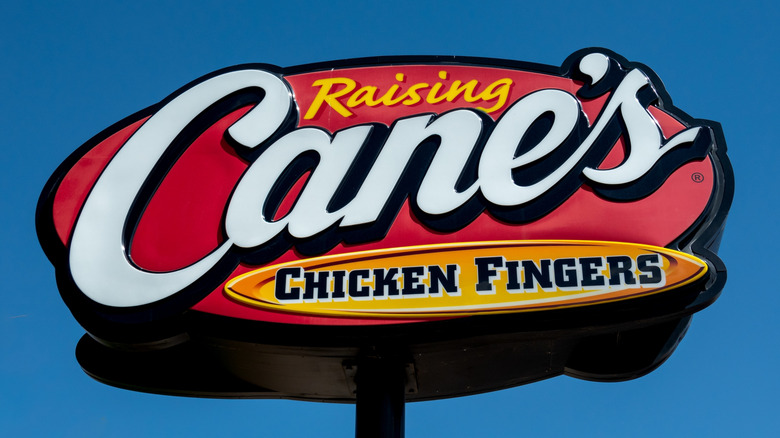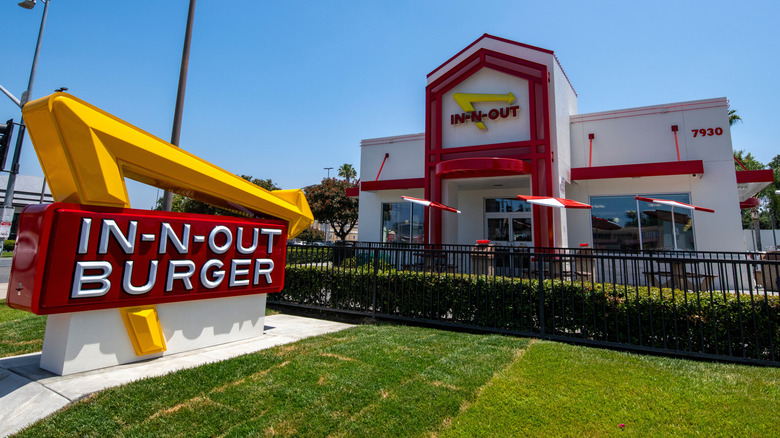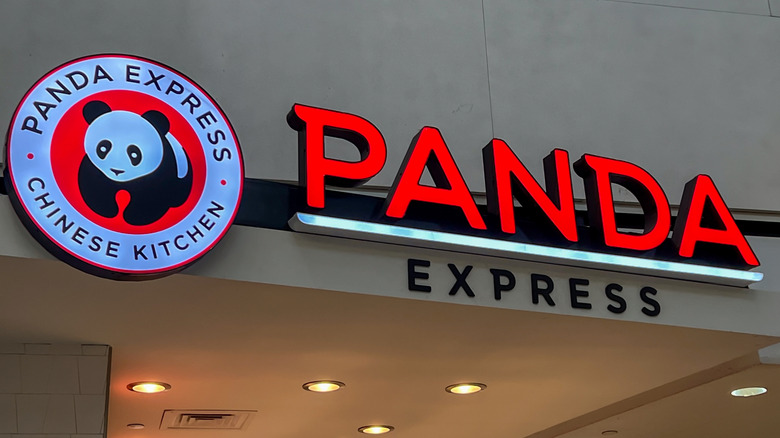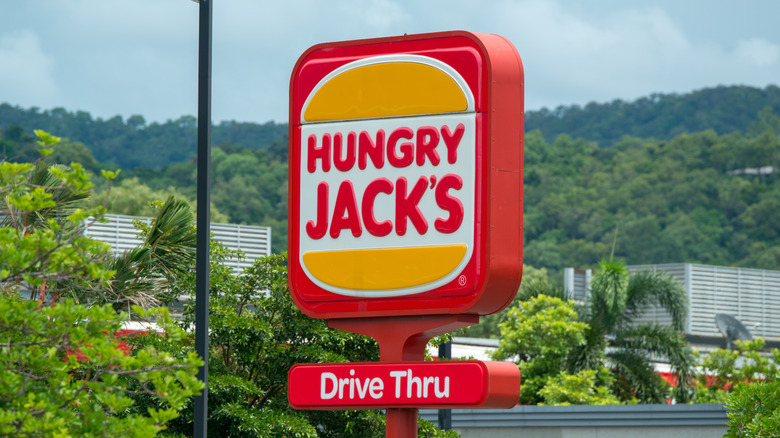5 Of The Richest Fast Food CEOs
Fast food is an enormous global business. In 2023, the worldwide fast food market was valued at over $750 billion (via GlobeNewswire), a far cry from the $0.05 White Castle sliders that started it all in 1921. This massive market is also growing. By 2030, fast food restaurants are expected to collectively make over $1 trillion a year.
Restaurant margins can be thin, but the scale economics of fast food can make profits easier to come by. And if the chief executive officer is also the founder and owner of the company, they're even more invested in their business' success, as they stand to reap more rewards. Such is the case for the lead executives of popular chains like Raising Cane's and Panda Express.
It's not just a founder's club at the top, though: The CEO of In-N-Out inherited the famous burger chain from family. And one more entry on this list built their fortune as an exclusive franchiser in Australia for some of the biggest names in American fast food. Let's dive into the details of these top-ranking fast food fortunes.
1. Todd Graves (Raising Cane's) | Net worth: $9.5 billion
Todd Graves is the owner, co-founder, and CEO of Raising Cane's Chicken Fingers. The idea was born during a business class assignment at Louisiana State University, for which Graves received the worst grade among his peers. Still, he believed in the core concept and founded Raising Cane's in 1996. Today, Graves has a personal net worth of $9.5 billion, according to Forbes.
Unlike other chicken chains that serve a variety of bone-in pieces, boneless wings, nuggets, tenders, and more, the main dish at Raising Cane's is chicken fingers, including sandwiches made from chicken fingers in a bun. This menu may seem one-dimensional, but it holds significant appeal. Forbes reports that in 2024, the average Raising Cane's location made $6.6 million in sales, and the company opened 118 new restaurants that year — beating its projected growth by nearly 20%.
Raising Cane's Chicken Fingers might have the crisp, juicy fare one would expect from its name, but the first half of the title comes from an unusual place. Raising Cane's is named after Graves' old dog, a Labrador retriever named Cane, who was frequently seen at the first restaurant's construction site in Baton Rouge, Louisiana. Cane and his successors, Cane II and Cane III, have served as the face of the business ever since.
2. Lynsi Snyder (In-N-Out) | Net worth: $7.3 billion
Lynsi Snyder is the sole grandchild of In-N-Out Burger's founders, Esther and Harry Snyder, and she became the sole heiress to the company after the untimely deaths of her father and uncle. Snyder became president of the company in 2010 and inherited ownership seven years later. The family burger empire has helped Snyder amass a net worth of $7.3 billion, according to Forbes.
Snyder is sometimes described as reclusive, and two kidnapping attempts in her late teens preceded her generally private life as an adult. But this hasn't hindered her success with the family business. Despite not inheriting complete control of the company until 2017, the Bloomberg Billionaire Index listed Snyder as a billionaire in 2013 thanks to her involvement with In-N-Out. Under her presidency, the brand has nearly doubled its overall footprint, adding at least 172 new stores and expanding to several new states since she took the helm. Since In-N-Out is a privately owned business that doesn't franchise, that's a lot of burger bucks in her pocket.
3. & 4. Andrew and Peggy Cherng (Panda Express) | Net worth: $7.2 billion
Together, Andrew and Peggy Cherng are the founders, owners, and CEOs of Panda Express. In addition to being married for 50 years, the Cherngs have amassed a net worth of $7.2 billion according to Forbes — $3.7 billion each — primarily from the Chinese fast food chain they launched together in a Glendale, California food court back in 1983.
The Panda Express story starts with Panda Inn, a sit-down Mandarin/Sichuan cuisine restaurant Andrew and his father, Ming-Tsai Cherng, founded in 1973. In 1975, Andrew married Peggy, who used her master's degree in computer science and doctorate in electrical engineering to develop Panda Inn's own computerized cash register that same year. Their newfound ease analyzing sales helped the Cherngs save up to self finance their own fast food spinoff, Panda Express, which proved instantly popular.
Panda Express eventually grew past mall food courts to its own physical locations, and it now operates over 2,400 restaurants. Instead of selling the company or franchising locations, Andrew Cherng told Forbes in 2023 that he and his wife maintain control because "We can run them better." With $5 billion in annual sales, a large fraction of which comes from Panda Express' signature orange chicken, he may be right.
5. Jack Cowin (Hungry Jack's) | Net worth: 3.3 billion
Unlike the other billionaires on this list, Jack Cowin built his fortune as a prominent franchiser, first for KFC in 1969 and then for Burger King in 1971. In 1984, Cowin founded Competitive Foods Australia (CFA) to organize his fast food businesses and branch out into other areas of food production. He remains the owner, CEO, and executive chairman of CFA and has amassed a net worth of $3.3 billion, according to Forbes.
Cowin's history with Burger King is somewhat fraught. In 1971, there was already an Australian restaurant named Burger King, so Australian Burger Kings were named Hungry Jack's to avoid a trademark dispute. In the 1990s, however, Burger King began building its own restaurants in Australia to enforce brand continuity over Cowin, essentially turning him into a business rival.
Cowin sued for breach of contract and ultimately won up to $75 million in damages from Burger King, which rebranded its own stores to Hungry Jack's and redoubled its investment in him. Though Cowin sold his KFC restaurants in 2013, he's still the master franchiser of Burger King in Australia. He's also executive chairman and a large shareholder of Domino's Pizza Enterprises, as well as the master franchiser for Domino's in many major markets, including France, Japan, and Australia.
